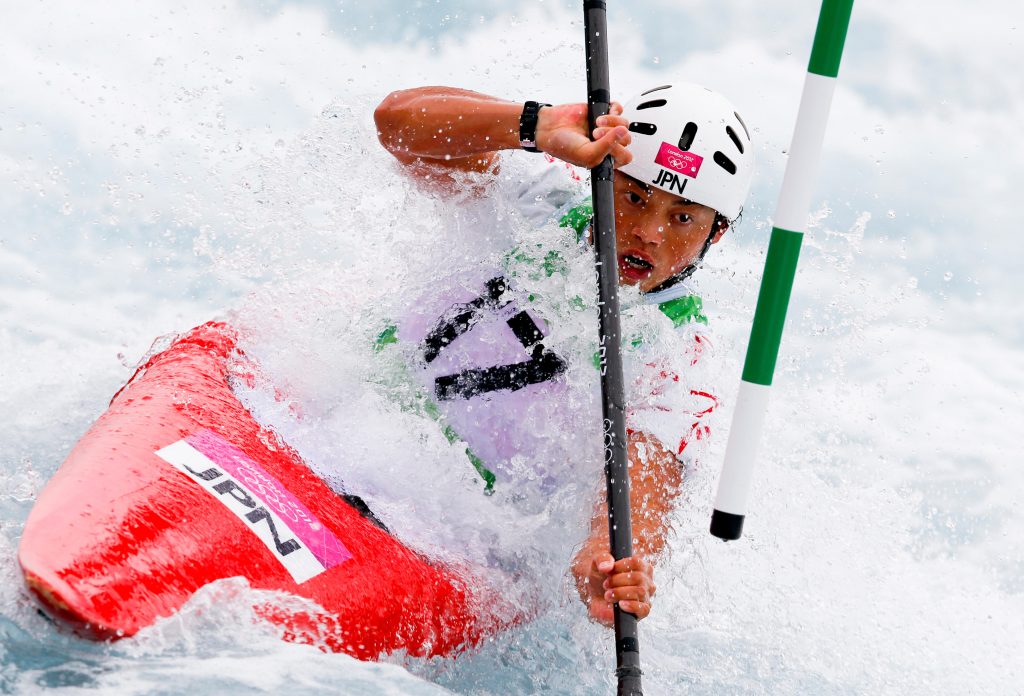While it is certainly not unusual for Olympic athletes to start their days well before the crack of dawn, canoeist Kazuki Yazawa isn’t hitting the gym or reaching for his paddles first thing in the morning.
Instead, he’s praying.
Of the hundreds of athletes preparing to participate in the Rio Olympics next week, Kazuki probably has the most unusual résumé. One of the top canoeists for Japan, he’s also a novice Buddhist priest who is juggling his training schedule with his religious calling.
“I never had the intention of balancing the two,” Yazawa recently told the Associated Press. ”When I started as a Buddhist priest, I had decided that my main job would be as a priest and that my life as a canoeist would be done in my spare time.”
But things didn’t quite turn out that way. Since 2013, the Olympian has been both training for the Olympics and learning the prayers and rituals required of priests at the historic Zenkoji Daikanjin Temple in Nagano, Japan.
Here are five things every Tricycle reader should know about him as they prepare to cheer Yazawa on:
A fellow canoeist inspired his path: Yazawa credits Nagano canoe association chairman Kenei Koyama, his mentor, for leading him to priesthood. A priest himself, Koyama was an invaluable resource to the 27-year-old Yazawa as he made his decision to take his vows.
He has a practical bent: Yazawa admits his decision to become a priest was not a purely spiritual decision. After finishing ninth in the K-1 kayak slalom event at the 2012 Olympics (and setting a Japanese record), Yazawa returned to Japan with dreams of endorsement deals and a bit of fame.
Alas, those deals never materialized and Yazawa realized he needed to find a job in order to support himself. After talking to Koyama, he was in part intrigued by becoming a priest because of the security the full-time job provided.
That was a big part of the reason Yazawa decided to take a mini-break from training in 2013 and focus on his new calling. It wasn’t until he won the Japanese Canoe Slalom National Tournament in 2015 that he turned back to the sport in earnest and began seriously resuming his athletic career.
He’s also adjusting to spending a long time on the cushion: Adapting to a new career has had its challenges. For one, the AP notes that Yazawa is still getting used to spending lots of time sitting on the floor in prayer. Senior priests are also helping him learn the chants as he shadows them during their daily duties.
He has cut his training time in half: As you might expect, working full-time as a priest doesn’t leave much time for Olympic-level training. That’s why Yazawa completely altered his schedule in the months leading up to Rio. After his prayers and other priestly duties end at 3 p.m., his second shift—that of an Olympic athlete—begins.
Six days a week, Yazawa swaps his robes for athletic clothing and heads to his usual practice spot along the Saginaw River. His fellow athletes would probably be stunned to discover that he only trains about an hour and a half a day before either heading to the gym or going for a run. By early evening, he’s completely finished—and gearing up to wake up early the next day.
His faith has helped him sharpen his focus: Despite the sacrifices his new path requires, Yazawa says he’s now even more prepared to compete on the world stage. “This time, I think I’m more at ease,” he said recently.
As for his fellow priests, they are completely behind him. “Regardless of the results, we hope you will stay healthy, avoid injuries, and complete the games,” said Kansho Kayaki, the deputy chief priest at Yazawa’s temple.
Thank you for subscribing to Tricycle! As a nonprofit, we depend on readers like you to keep Buddhist teachings and practices widely available.
